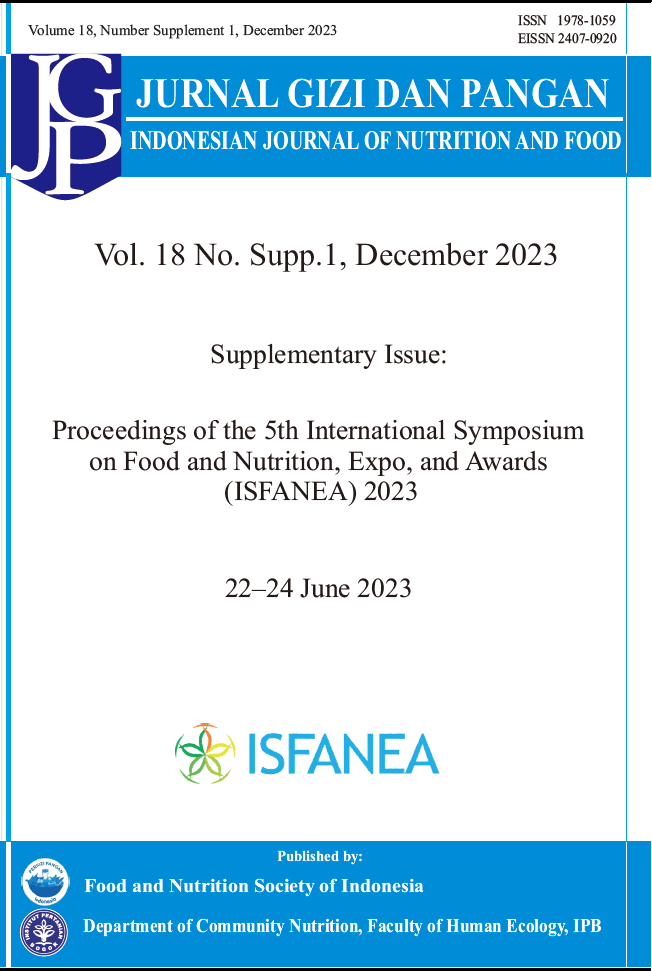Tempeh as a Cultural Heritage in Indonesia: Intergenerational Perception
Abstract
This study aimed to assess how people perceive tempeh. The study was conducted using an online self-administered questionnaire among 340 respondents aged between 11 and 58 years. The results showed that respondents perceived tempeh as an Indonesian cultural food (97.70%), a highly nutritious food (99.41%), and a superfood (86.47%), and 51.76% of respondents consumed 50 g of tempeh daily. Most respondents perceived tempeh to have economic impact (91.7%) and used it as a food for celebrations (95.29%), and there was no significant differences between generations (p<0.05). The conclusion is that tempeh is perceived as an Indonesian cultural food that has cultural, economic, and nutritional value.
References
Aryanta IWR. 2020. Manfaat tempe untuk kesehatan. Widya Kesehatan 2(1):44–50. https://doi.org/10.32795/widyakesehatan.v2i1.609
Astawan M, Wresdiyati T, Widowati S, Bintari SH, Ichsani N. 2013. Karakteristik fisikokimia dan sifat fungsional tempe yang dihasilkan dari berbagai varietas kedelai. Jurnal Pangan 22(3):241–252. https://doi.org/10.33964/jp.v22i3.102
Romulo A, Surya R. 2021. Tempe: A traditional fermented food of Indonesia and its health benefits. Int J Gastron Food Sci 26:100413. https://doi.org/10.1016/j.ijgfs.2021.100413
Taimenas E, Falo M. 2017. Dampak faktor sosial Ekonomi terhadap produksi home industri tempe di Kelurahan Oelami Kecamatan Bikomi Selatan. Agrimor 2(03):44–47. https://doi.org/10.32938/ag.v2i03.310
Authors

This work is licensed under a Creative Commons Attribution-ShareAlike 4.0 International License.





